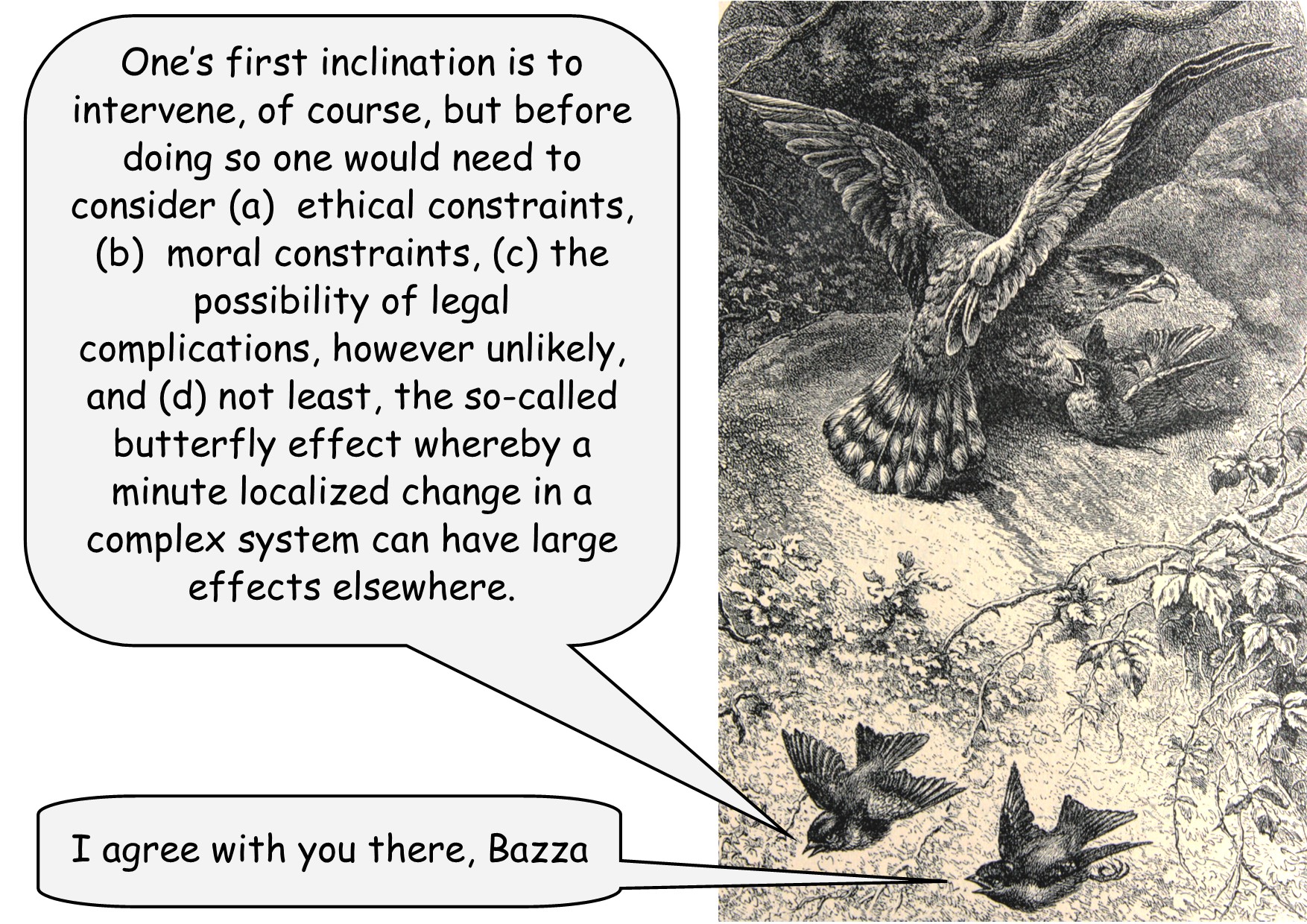
From: Canberrabirds <>
On Behalf Of David McDonald (Personal)
Sent: Friday, January 5, 2024 9:05 PM
To: Canberrabirds list <>
Subject: Re: [Canberrabirds] Birding philosophy
Thanks Ben. Perhaps part of the challenge here is to differentiate between ethics and morals. Ethics is concerned with what I aught to do in a given situation. Morals are concerned with the rules
about right and wrong that I feel obliged to follow—rules that come from outside of myself. The moral stances of various religions come to mind. Ethics is about using our intellect to decide what we should or should not do in a given situation, rather than
simply following a set of rules that have been imposed upon us, or that we have accepted voluntarily.
I have long had concerns about my professional associations’ so-called Codes of Ethics. Mostly they seek to impose a set of rules about what we should do or not do. They seek to codify a set of morals.
They don’t give us guidance as to how to make our own decisions about what is ethical.
So, with your question, were we to pose it as an ethical one, we would ask what should I do when I see, for example, a currawong attacking a fairy-wren nest? The challenge here is that there is no
clear guidance on how to answer the question, as different people will answer it differently. And that is as it should be.
That said, the guidance from the brilliant Sydney-based Ethics Centre is, I suggest, helpful. Anyway, I have found it to be so.
To quote from
https://ethics.org.au/knowledge/what-is-ethics/
… there are a few questions you can ask that can help crystalise the ethical issues for you.
- Would I be happy for this decision to be headlining the news tomorrow?
- Is there an ethical non-negotiable at play?
- Will my action make the world a better place?
- What would happen if everybody did this?
- What will this do to my character or the character of my organisation?
- Is this consistent with my values and principles?
Perhaps this helps?
Best wishes - David
From: Canberrabirds <>
On Behalf Of ben milbourne via Canberrabirds
Sent: Friday, January 5, 2024 6:10 PM
To:
Subject: [Canberrabirds] Birding philosophy
I pose the following query: if its unethical to disturb birds when seeking to (example) observe them or grab a photo, is it also unethical to rescue them, as this too could be argued as interrupting (eg its life cycle, a food source for
other species, etc).
Yes, there will be many meaningful reasons to help. And many will simply state that it depends on the situation. But if so, are we applying this across the board or only if it aligns with our own preferences and understanding.
So, ask ... where do we draw the line of what is ethical birding and unethical disruption? On what grounds is the line to be defined? How might we approach resolving it? And for whose benefit are we motivated?
As I said, this is a philosophical query. But nonetheless one which, when posed, may offer insight into our own awareness and decision-making. Both as individual birders and as a community.
Hope to bump into you out in the great outdoors

